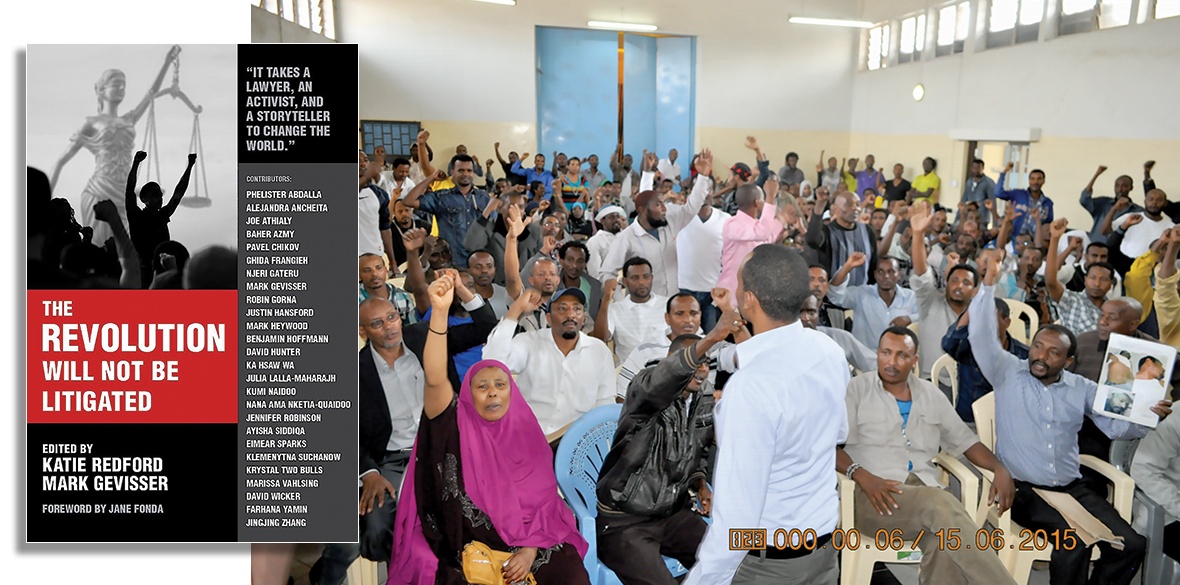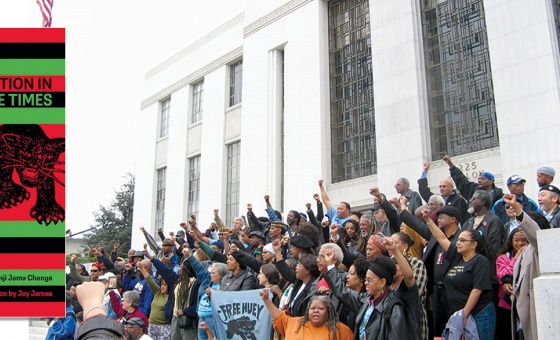This is the last article you can read this month
You can read more article this month
You can read more articles this month
Sorry your limit is up for this month
Reset on:
Please help support the Morning Star by subscribing here
The Revolution Will Not Be Litigated: People Power and Legal Power in the 21st Century
Edited by Katie Redford and Mark Gevisser
OR Books, £16.99
MARXIST debates on jurisprudence have left an ambivalent legacy in which the default position is that there is no “theory of law” per se distinguishable from a broader focus on the state.
While the scholar Evgeny Pashukanis developed influential Soviet perspectives on the sociology of law, it is no small irony that he fell foul of Stalin’s statist addiction.
It is probably fair to say that, overall, Marxist positions reject the fetishism attributing law an intrinsic nature, considering it instead to be merely an instrument of domination by a class or capital itself.
What is striking about The Revolution Will Not Be Litigated is that every contribution within this collection confirms this, if indirectly: the law is inherently political, serving dominant interests rather than society.
These contributors remind us of the simple truth that “justice” is an illusion: the law is a product of the state, always coercive, always ideological, its precepts always economically determined, and it always serves the interests of the ruling class.
As a result, struggles for justice against seemingly impossible odds only become winnable — or even contestable — when legal weapons are used in combination with social weapons.
The inescapable conclusion among many public interest lawyers themselves, evident throughout this collection, is that in any battle against injustice there are in fact two courts that matter: the courts of law, and the courts of public opinion.
This collection explores the relationship between those forums on a global stage from the vantage both of social movements themselves and the advocates they work with.
In many ways, the latter are transnational players who slip into and out of national jurisdictions that are constantly seeking ways to subvert universal principles.
The book demonstrates how the resort to law in cases from Burma to Kenya and Peru is inseparable from the work of organising campaigns and raising awareness — particularly so in the era of lawfare when almighty invisible hands marshal judges routinely to crush dissent.
It joins a growing body of literature about transnational justice movements and a new field exploring the strategic relationship between law and activism, dubbed “demosprudence.”
As co-editor Mark Gevisser points out, paraphrasing the words of the US rights lawyer Michael Ratner: “It takes a lawyer, an activist, and a storyteller to create positive social change.”
The book traces the strategic value — and the limitations — of legal struggle. In some cases, a Samson with a backpack can topple a global Goliath. In the Epilogue, co-editor Kate Redford outlines valuable “Rules for Radical Lawyers” that propose how this can best be achieved.
She writes: “Law, of course, is the master’s tool par excellence … I have learned that we can use the law, very effectively, to beat the master at his own game — and we must.”
But while much of the work carried out in such cases is based on constitutional or international human rights laws — liberal legalism par excellence — it is often premised on the implication that, ultimately, these laws serve the oppressive powers that be.
This essential Marxist premise is certainly much in evidence when considering the bare-faced imperialism which underpins many of the struggles outlined here.
Jennifer Robinson, the lawyer of persecuted WikiLeaks founder Julian Assange, for example, exposes the sickening hypocrisy and routine illegality of US efforts to neutralise their man, including a CIA plot to kill him, and Britain’s cuckolded subservience to its master.
The courts have arguably been a sideshow to a much more fundamental exercise in prepotency.
Robinson writes: “I’ve learned that it’s often not enough to have a just cause; you also need politics on your side … the law is a language of power and is a lever, but it is not the only lever.”









